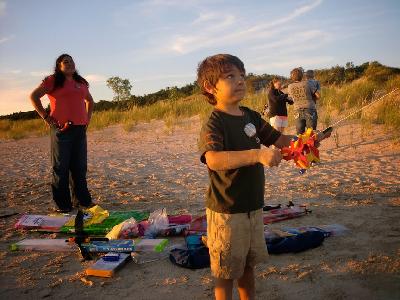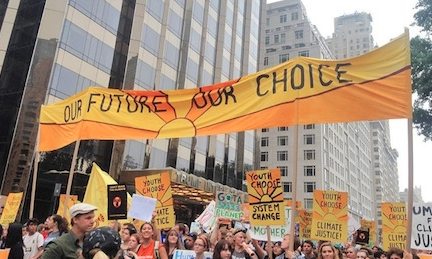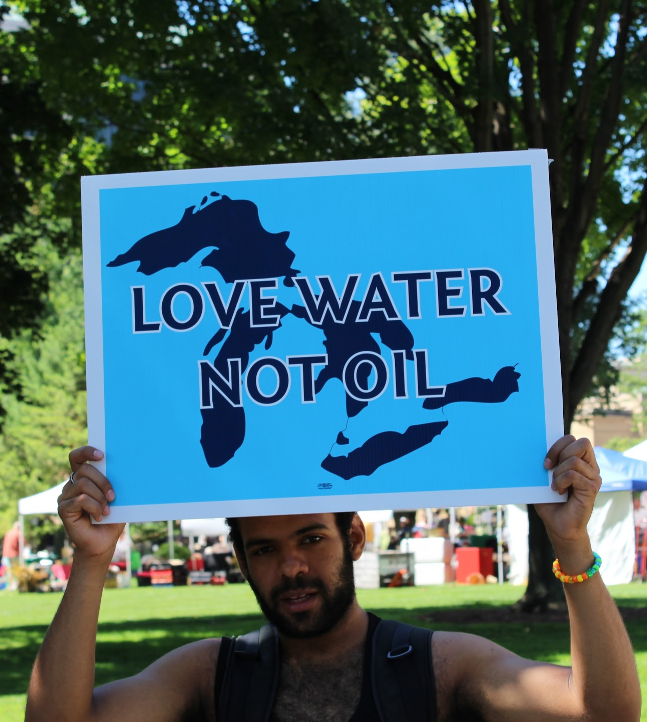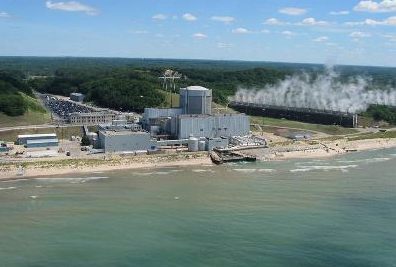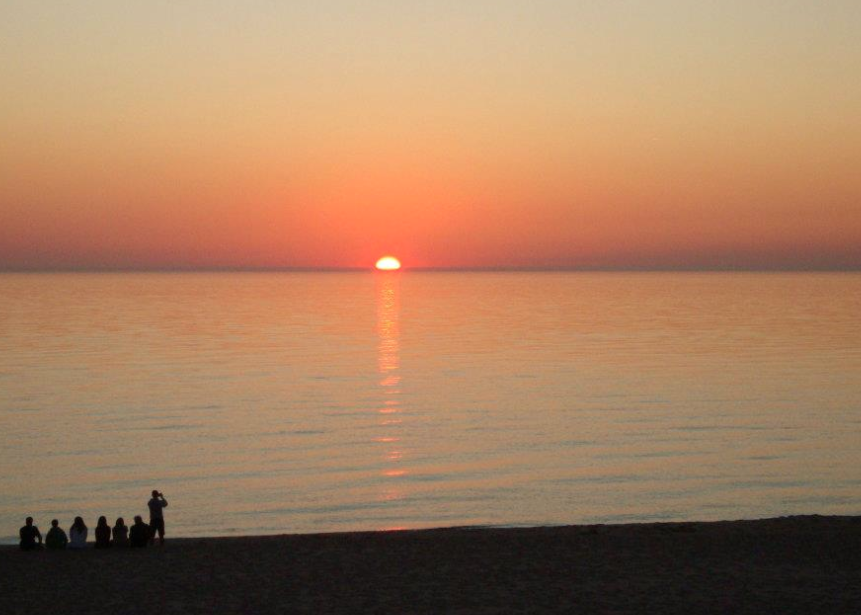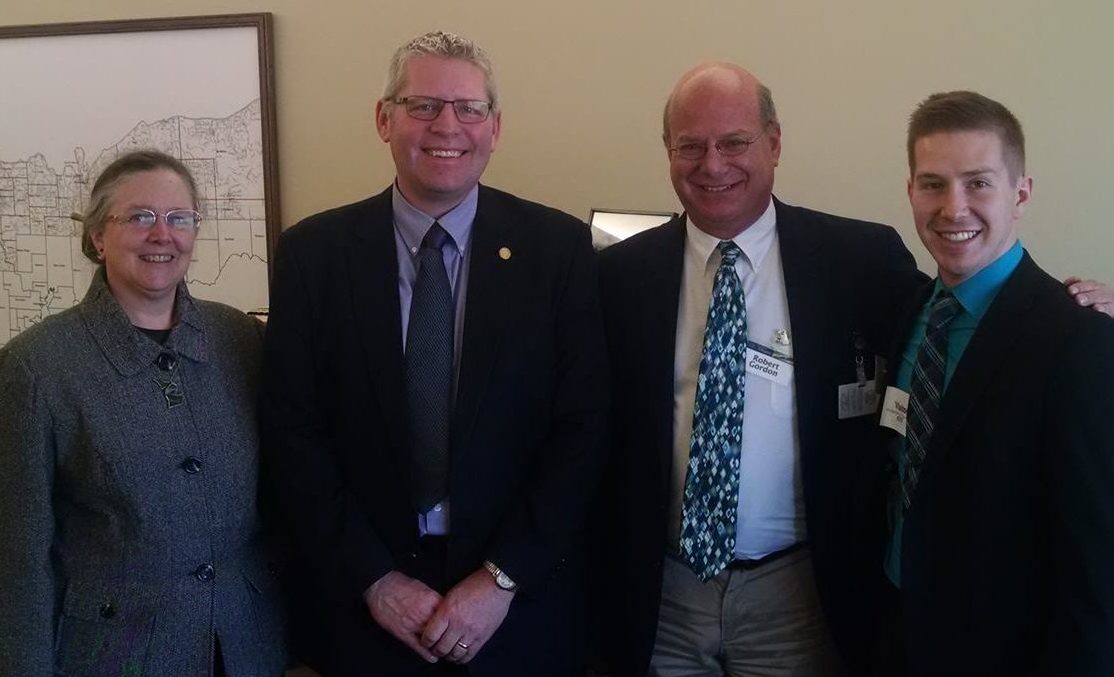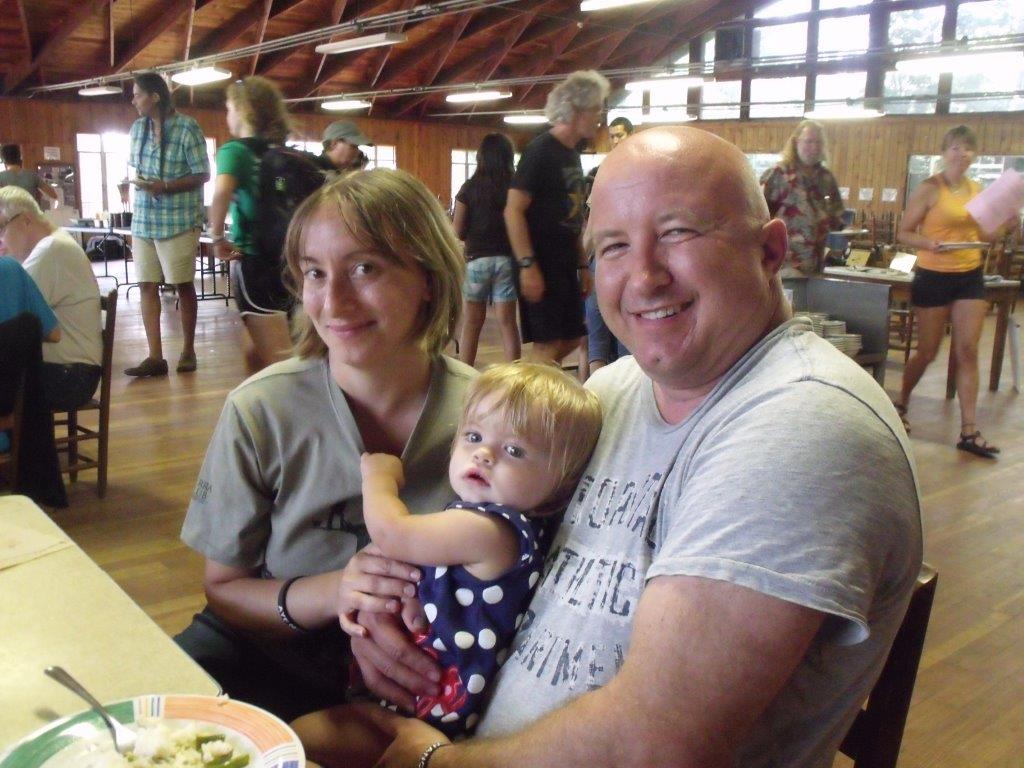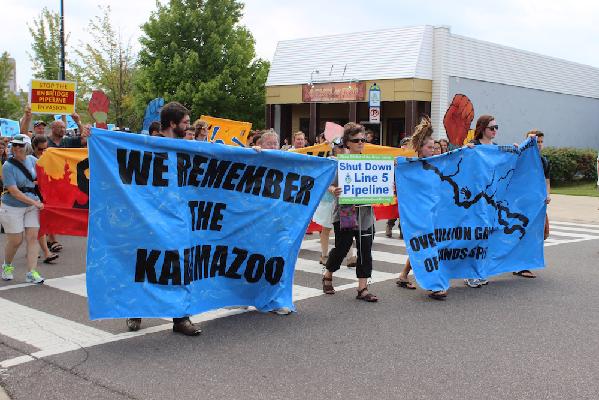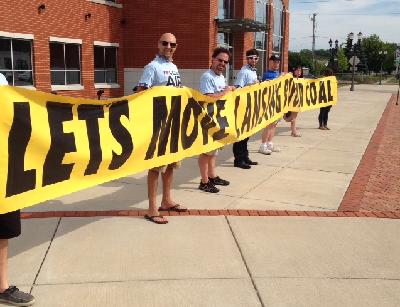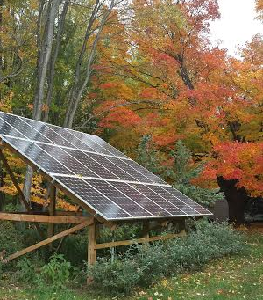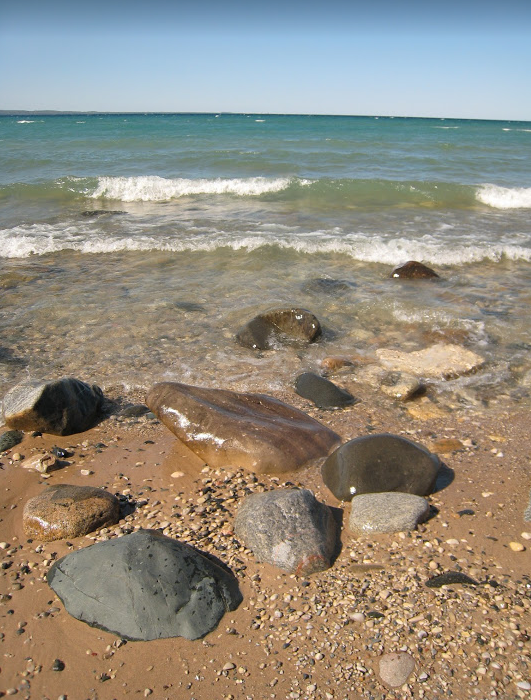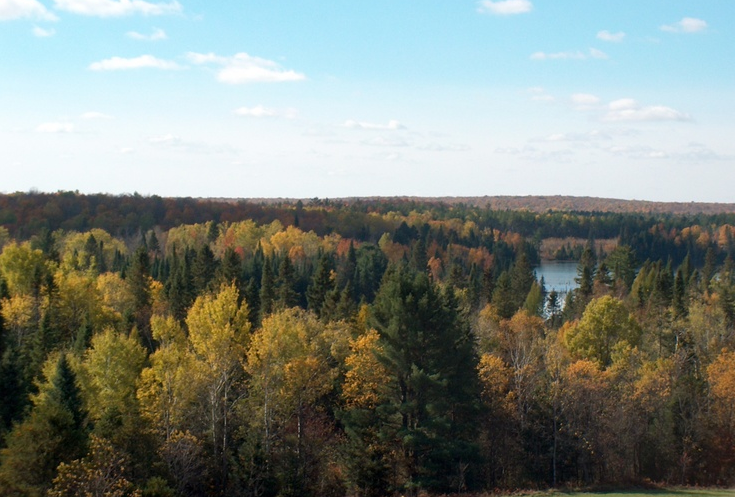The Sierra Club Michigan Chapter submitted the following testimony to the Senate Energy and Technology Committee in response to Senate Bill 438 on Tuesday, August 25.
August 25, 2015
To: Chairman Nofs and members of the Senate Energy and Technology Committee
RE: Senate Bill 438
August 25, 2015
To: Chairman Nofs and members of the Senate Energy and Technology Committee
RE: Senate Bill 438
On behalf of our 60,000 members and supporters in Michigan, the Sierra Club urges a NO vote on SB 438 (Proos), a bill that would eliminate Michigan’s renewable energy standard, sunset the state’s energy optimization standard, establish a definition for “clean energy resources” that includes polluting fossil fuels, and modify net metering in a way that would discourage distributed generation. Michigan legislators must reject SB 438 because it would undermine Michigan’s progress to date and put our future at risk.
Michigan’s renewable energy and efficiency standards have been unparalleled successes. They’ve created jobs, saved ratepayers money and enhanced economic development, while simultaneously protecting the health of Michigan’s citizens and the Great Lakes by reducing dirty, costly fossil fuels in our energy sector. Now is the time for our elected officials to increase Michigan’s renewable energy standard as both Michigan state agencies and nationally acclaimed energy experts show that our state can dramatically increase its renewable energy and efficiency capacity while boosting our economy and protecting our environment.
Michigan’s renewable energy and efficiency standards have been unparalleled successes. They’ve created jobs, saved ratepayers money and enhanced economic development, while simultaneously protecting the health of Michigan’s citizens and the Great Lakes by reducing dirty, costly fossil fuels in our energy sector. Now is the time for our elected officials to increase Michigan’s renewable energy standard as both Michigan state agencies and nationally acclaimed energy experts show that our state can dramatically increase its renewable energy and efficiency capacity while boosting our economy and protecting our environment.
Energy Waste
Eliminating Michigan’s energy optimization (EO) standard in 2019 is the wrong choice for ratepayers. Energy savings, monetary savings, and greenhouse gas emission savings would all be decreased without an Energy Optimization standard. Integrated Resource Planning should be used in conjunction with a mandated efficiency goal, not instead of it. Investor-owned energy companies have little incentive to sell less energy and reap less profit, but as regulated monopolies they can and should be required to help their customers reduce energy waste.
Eliminating the EO standard contradicts both Governor Snyder’s plan to eliminate energy waste and the outstanding success of the current measure in saving ratepayers money. Michigan residents today save $3.55 for every dollar invested in our current efficiency program, while simultaneously preventing carbon and other pollution. Michigan’s energy efficiency industry is a driving force in our economy that employs more than 46,000 Michiganders, while also averting greenhouse gas emissions. The bill also establishes a cap on how much utility companies can spend on energy waste reduction programs at 2% of total utility retail sales. Waste Reduction is the cheapest way to save ratepayers money and decrease greenhouse gas emissions, so Sierra Club opposes any arbitrary limits or caps.
Definition of Clean Energy
The bill defines “Clean Energy” in a way that allows unsustainable forms of energy such as natural gas, waste incineration, nuclear, and other fossil fuels to be considered clean energy sources. This definition is too broad and weakens the true meaning of Clean Energy. Energy sources that emit air and water pollution, including the greenhouse gases carbon dioxide and methane, and produce radioactive waste should not be considered “clean energy” in Michigan’s laws.
Climate Change
SB 438 is a dangerous proposal that takes Michigan in the wrong direction when it comes to protecting our state from climate disaster. Climate disruption caused by greenhouse gases from human sources is an urgent threat to our everyday lives and our future, and its impact is already being felt in Michigan. Climate disruption is about more than warmer temperatures – it’s about disrupting the basic weather patterns that affect almost everything in our lives - our water supplies, how we grow our food, the kinds of diseases we deal with, and the ability to keep our families safe.
We can already see the effects of climate disruption all across America: unprecedented droughts and wildfires in Western states, record-breaking heat in the Southwest and Midwest, Hurricane Katrina and Superstorm Sandy, extreme winter weather in traditionally warm states, and melting glaciers in Alaska. Extreme weather events are becoming more frequent, harming people, their economic well-being, their health, their homes, and their futures. Right here in Michigan, we’ve seen cherry and apple crops completely devastated due to abnormal and extreme weather patterns exacerbated by climate disruption. The time to fight climate disruption is now, but enacting SB 438 would contribute to more climate disasters.
Sierra Club members call on our elected leaders to combat climate disruption by moving Michigan beyond fossil fuels and towards true clean energy sources like wind, solar, and energy efficiency. According to a Yale study from last year, 61% of Michiganders believe climate change is happening, 76% believe we should regulate carbon pollution, and 60% support increasing our state’s renewable energy standard. The message is clear: Michiganders oppose SB 438 and want more renewable energy and efficiency instead.
Green Pricing Program
The green pricing program established in this legislation is a step in the right direction. However, voluntary programs wane in the long run because utility companies operate under a regulated monopoly with a guaranteed rate of return/profit. Investor-owned energy companies have little incentive to invest in energy sources that protect the planet, because they are guaranteed a profit no matter which sources they utilize. If we can guarantee utility companies a profit, we should also require them to invest in energy sources that protect our air and water instead of unsustainable sources. We need mandates in addition to voluntary programs in order to truly protect Michigan’s environment and ratepayers.
Distributed Generation
The distributed generation portion of this legislation is a step in the wrong direction. Currently, small-scale solar projects in place or being installed on Michigan homes, businesses, and non-profits are able to connect to the grid through Michigan’s net metering program, which has been a huge success. SB 438 would drastically undercut homeowners who are investing in Michigan’s future through renewable energy systems. Under SB 438, those families which invest their own funds in their own private renewable power systems and connect them to the grid to help with power distribution and peak demand, would be mandated to buy all their power at retail rates from the monopoly power company in their area, and meanwhile be forced to sell the electricity they generate at home back to utility companies for less than it is worth. This staggeringly anti-entrepreneurial concept runs contrary to common sense and the best interests of our state. Net metered electricity from solar is normally produced when there is peak demand for electricity. This means solar power generation through net metering actually saves all ratepayers substantial money over time by reducing the need to invest in electric generation plants for peak load, which are the most expensive to build, maintain and run, and drive up the cost of electricity for all ratepayers.
According to the Metropolitan Policy Program at Brookings, between 2003 and 2010, the solar industry was one of the fastest growing segments of Michigan's economy, increasing at a rate of 15.8 percent each year with 121 companies in Michigan and employing 6,300 workers. This bill could kill that economic progress. This bill would discourage investment in solar production by delaying payback periods from 10 years (which most customers get today) to 18-20 years. Ratepayers who are investing in distributed generation already are willing to take on the burdensome costs for net metering, including application fees, metering installation, interconnection, and testing costs, while also requiring pay delivery charges and non-fuel portion of power supply rates. We should not be adding more costs on these ratepayers while at the same time requiring them to sell their clean, home generated energy for less than its true value. In addition, facilities that produce energy on-site via distributed generation are better protected from large power outages than traditional customers who depend on the grid.
Michigan should encourage distributed generation instead of limiting it. Although the new plan increases allowed distributed generation to 10% from the previous 1% cap, we believe there should be no cap, giving the opportunity for all Michiganders to participate and decide how they want to use their energy. Senate Bill 438 would discourage distributed generation to the detriment of ratepayers, homeowners and businesses.
Subsidies
Some supporters of SB 438 have claimed that renewable energy and efficiency programs are being unfairly subsidized and that this bill restores market forces. What they don’t disclose, however, is that the fossil fuel industry received $502 billion in overall subsidies from U.S. taxpayers in 2012, according to a report from the International Monetary Fund. In comparison, the renewable energy industry (excluding biomass) received $24 billion in federal support in 2012, less than five percent the subsidization of fossil fuels.
In addition, the International Monetary Fund recently reported that fossil fuel pollution costs the world $5 trillion annually in public health and environmental problems. Pollution costs are externalized from the market and are another form of fossil fuel subsidization, balanced out by costs to people’s health and degradation to our natural resources. For an example right here in Michigan, a 2011 report from Environmental Health and Engineering, Inc. showed that particulate matter pollution (PM2.5) from Michigan’s nine oldest coal plants are costing $5.4 billion a year in public health costs.
When determining Michigan’s next energy policy, the legislature must also consider the context of excessive subsidies currently given to fossil fuel based suppliers. We encourage you to pass policies that even the playing field for sustainable forms of energy such renewable energy standards, energy optimization standards, fair pricing for distributed generation, and enabling community energy projects.
Out of State Spending
Michigan currently spends $22 billion a year importing fossil fuel into the state, for both transportation and power. We get 100% of our fuel for coal and nuclear energy and 80 percent of our natural gas from other states. Solar and wind are fuel free; once installed, the cost of energy is zero. That is all money that then gets spent in Michigan instead of sent out of state to import fuel. Our public policies should support renewable energy development and energy optimization instead of continuing our reliance on polluting and volatile fossil fuels like natural gas and coal.
Sierra Club’s Policy Recommendations
The Sierra Club specifically calls on the Michigan legislature to:
- Increase Michigan's renewable energy standard to 30% by 2030, as the Public Service Commission and Energy Office have all said is readily achievable.
- Increase Michigan's energy optimization standard from 1% to 2% annually.
- Remove the existing spending cap on Michigan's energy efficiency program.
- Ensure that "clean" or "renewable" energy is not redefined to include anything that emits greenhouse gasses or creates radioactive waste such as fossil fuels, nuclear energy, or energy from incinerating wastes.
- Ensure that electric ratepayers are able to produce their own energy to either use themselves or sell back to a utility company at full retail price, not a wholesale or lowered price.
- Remove the existing cap on net metering and all other regulatory barriers to distributed generation.
- Enable all individuals, organizations, places of worship and utilities to establish community renewable energy gardens, similar to the ones currently operated by Cherryland Electric Co-Op and proposed for the Lansing Board of Water and Light, and require investor-owned utilities to purchase generated energy from these entities.
For these reasons, we urge you to vote NO on SB 438. Votes pertaining to this bill will be included in the Sierra Club’s legislative scorecard.
Sincerely,
Mike Berkowitz
Legislative and Political Director
Sierra Club Michigan Chapter


